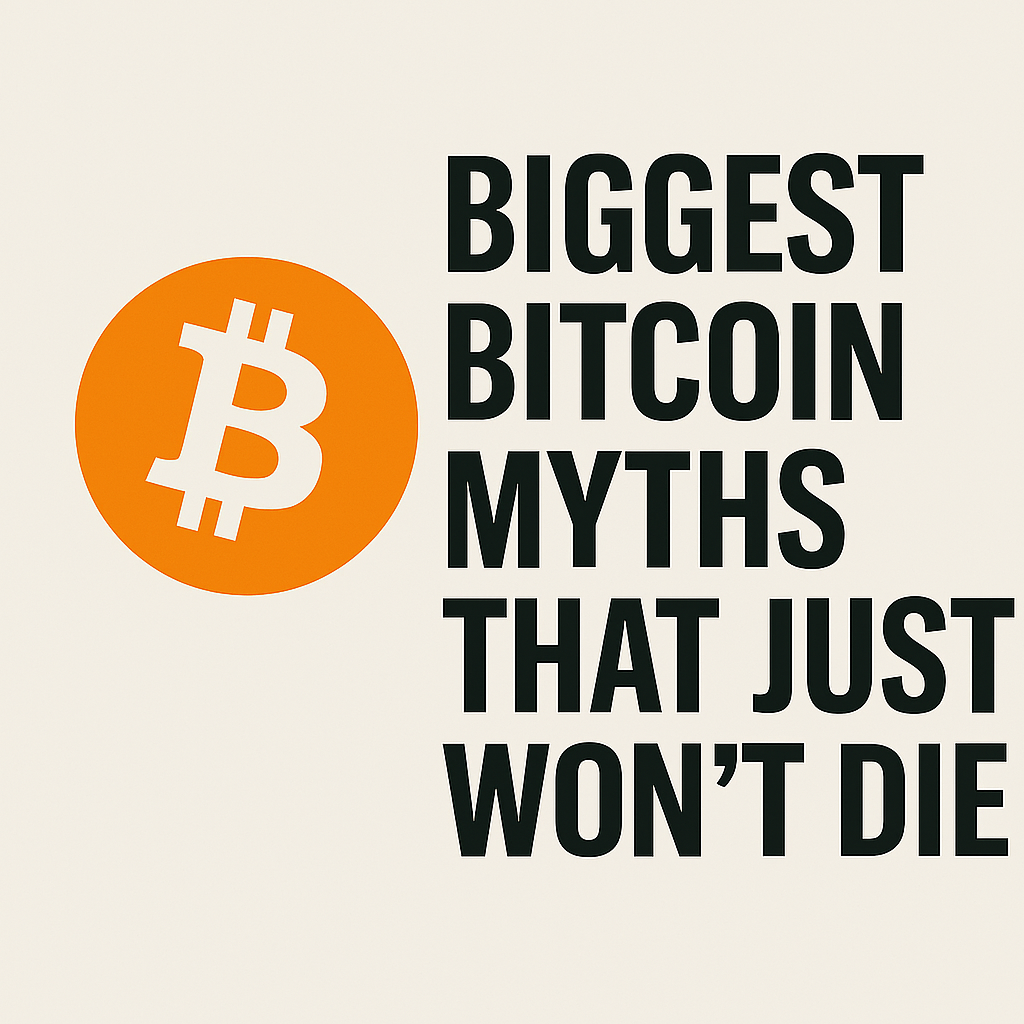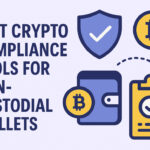In this article, I want to talk about the Biggest Bitcoin Myths That Just Won’t Die. Even with the increased acceptance of Bitcoin and its recognition in the mainstream world, many misconceptions continue to exist.
These myths tend to trap new users and expand their doubts. Ranging from claiming complete anonymity to associations with criminal activities, I’ll go through every single myth and their opposing truths that these persistent assumptions rest upon.
Key Point & Biggest Bitcoin Myths That Just Won’t Die
| Statement | Key Point |
|---|---|
| Bitcoin is Anonymous and Untraceable | Bitcoin is pseudonymous—transactions are recorded on a public blockchain. |
| Bitcoin Has No Intrinsic Value | Like fiat money, Bitcoin’s value comes from supply, demand, and user trust. |
| Bitcoin is Used Mainly by Criminals | Illicit use is a small fraction; most Bitcoin transactions are legal. |
| Bitcoin is Bad for the Environment | Bitcoin’s energy use is shifting toward renewable sources and more efficiency. |
| Bitcoin is a Bubble | Bitcoin has seen bubbles, but its long-term trend shows adoption and utility. |
| Bitcoin is Too Volatile to Be Useful | Volatility is decreasing over time as the market matures. |
| Bitcoin Will Be Banned by Governments | Many governments regulate Bitcoin rather than banning it. |
| Bitcoin is a Ponzi Scheme | Bitcoin has no central operator or guaranteed returns—unlike Ponzi schemes. |
| You Have to Buy a Whole Bitcoin | Bitcoin is divisible; users can buy fractions as small as 0.00000001 BTC. |
| Bitcoin Will Be Replaced by “Better” Coins | Bitcoin’s network effect and security make it hard to displace. |
1. Bitcoin is Anonymous and Untraceable
Most people think that Bitcoin transactions are fully anonymous. Unfortunately, that is far from the truth. It is true that Bitcoin transactions are recorded on the blockchain, a public ledger and everyone can access it.
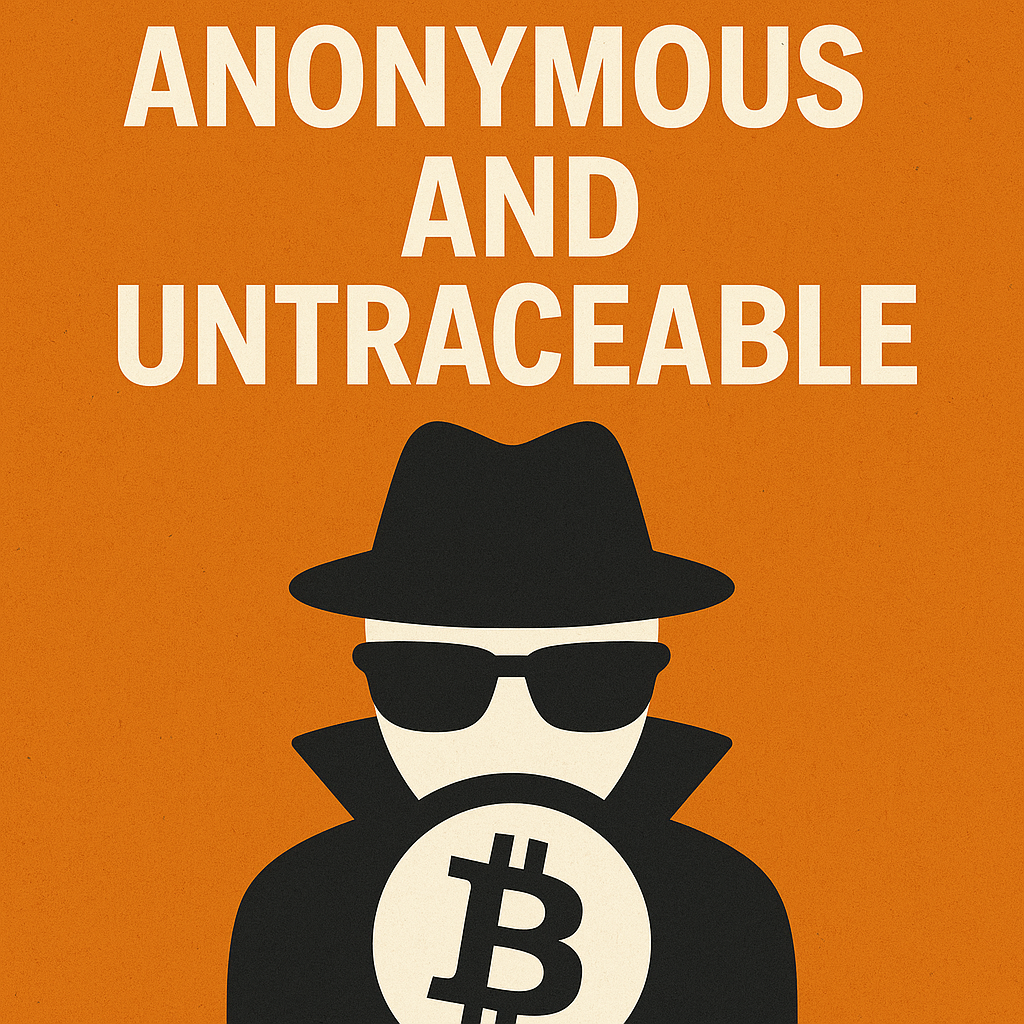
However, Bitcoin addresses do not disclose identities, but some advanced tracking methods and blockchain analysis tools can associate addresses with individuals. Law enforcement and forensic firms have traced illegal transactions, proving that Bitcoin is not as anonymous as many believe.
While privacy tools like mixers exist, they do not ensure complete anonymity. Compared to cash, Bitcoin is a lot more transparent. For full anonymity, other cryptocurrencies like Monero and Zcash utilize advanced cryptographic techniques that obscure details of transactions, which makes them more private compared to Bitcoin.
Bitcoin is Anonymous and Untraceable Pros & Cons
Pros:
- Provides discretion for users who guard their freedom.
- Helps defend citizens under authoritarian regimes.
- Enables error-free transactions without censorship.
Cons:
- Could be exploited for illegal acts such as laundering money.
- Authorities can still follow all these anonymous transactions using blockchain transaction tracing.
- The public conceiving things the wrong way hurts widespread adoption.
2. Bitcoin Have No Intrinsic Value
A lot of people think that Bitcoin possesses no intrinsic value because it is not backed by physical assets such as gold. Despite this, gold has value because of its usefulness, and so does Bitcoin – it just comes in a different form. The nature of Bitcoin, its remaining supply, and its security are what’s important.
Unlike fiat currencies that central banks can print at will, Bitcoin has a fixed supply of 21 million coins, which ensures its limited issuance. Bitcoin provides fiat-free, decentralized, censorship-resistant financial sovereignty.
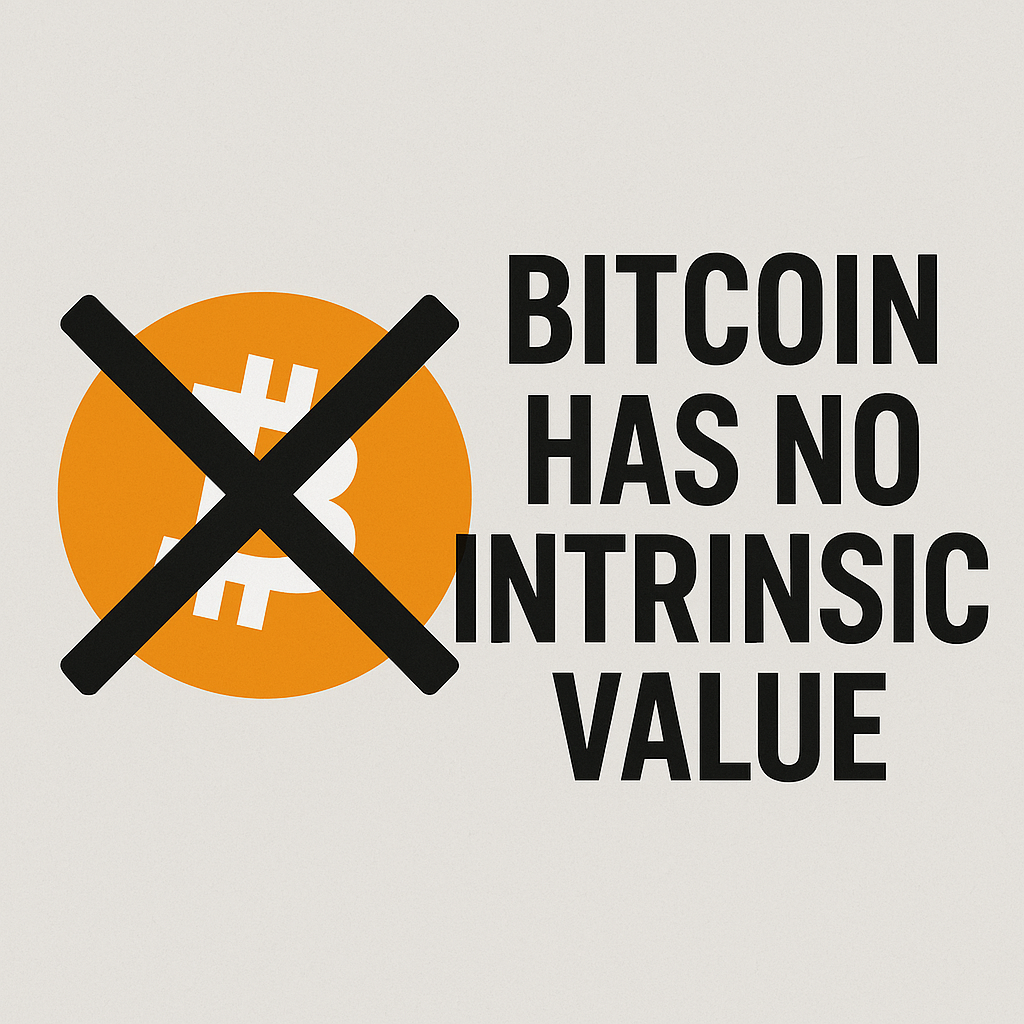
This is highly important for many places suffering from unstable economic conditions. Moreover, the transactions can be verified and carried out with great security using its blockchain technology.
Just like gold, the value of Bitcoin is driven by market demand rather than needing to be physically backed. The argument that Bitcoin doesn’t have any intrinsic value is ignoring the fact that trust in decentralized networks holds just as much value as physical commodities.
Bitcoin Has No Intrinsic Value Pros & Cons
Pros:
- Blockchain currency, just like fiat currency, relies on trust, and is scarce.
- A decentralized currency that has no master or any one power.
- Placeable and Divisible unlike other fiat that comes with unique advantages.
Cons:
- No supporting aspects such as gold or other tangible assets.
- That type of volatility can easily make someone ponder about it’s value.
- Quite a different perception depends on the users or the institutions
3. Bitcoin is Used Mainly by Criminals
The media assumed Bitcoin was particularly appropriate for illegal transactions for the fictitious drug market Silk Road. What research has been able to identify, however, is that the nefarious use of Bitcoin transactions is far lower than that of fiat currencies.
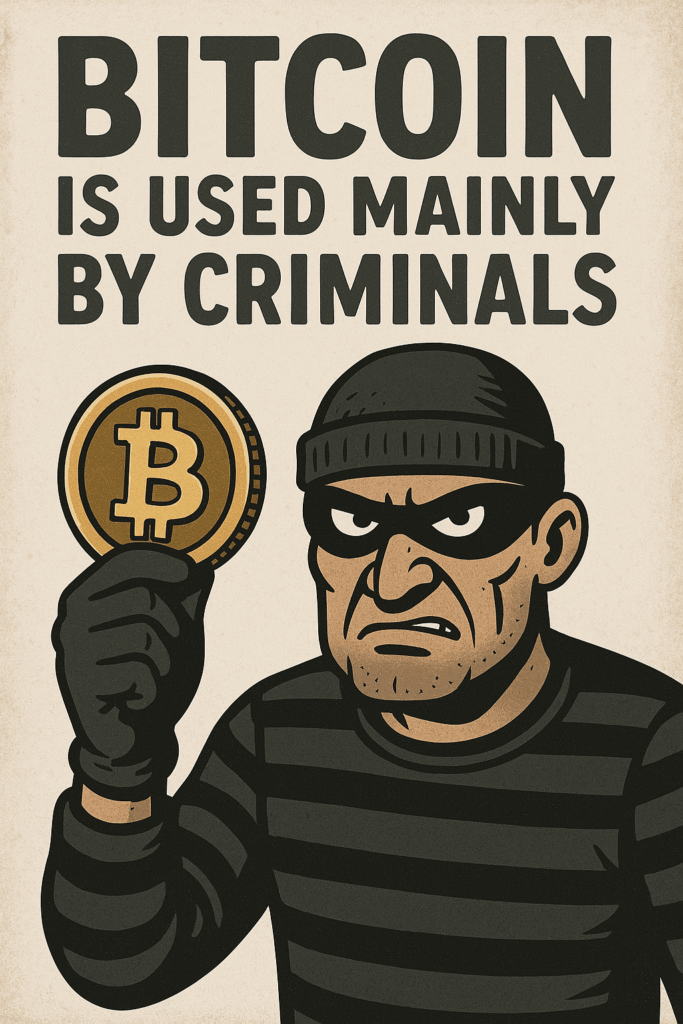
Currently, the overwhelming majority of Bitcoin activity is driven by its investment value, remittances, and even payments. Companies such as Microsoft and Starbucks allow for purchases through Bitcoin.
It is easier for one to hide their tracks in traditional systems of banking and currencies as opposed to using Bitcoin which is trackable. The criminalistic use of cash is significantly greater. Due to this, it becomes clear that Bitcoin is not primarily utilized by criminals which requires a change in understanding.
Bitcoin is Used Mainly by Criminals Pros & Cons
Pros:
- The only use case for bitcoin was the world markets. This forged the anciet testing that provided the frameworks of its tech.
- The trail behind it helps legally sane criminals work during investigations.
Cons:
- Slow adoption because people focus deeply on fake negative connotations attached.
- Hides its wide legal and institutional usage and emergence.
- Crime deterrence taking the backseat when there’s honest transaction happening.—
4. Bitcoin is Bad for the Environment
The process of Bitcoin mining is said to be harmful to the environment as it is a high electricity consuming.activity. Despite that, a growing number of Bitcoin miners are adopting renewable sources of energy, such as hydro, solar power, and wind energy.
Additionally, mining also promotes energy efficiency, which spurs innovation in clean energy technologies. Comparatively, some studies show that the aggressive energy consumption by Bitcoin mining pales in comparison to that required by the banking and gold industries.
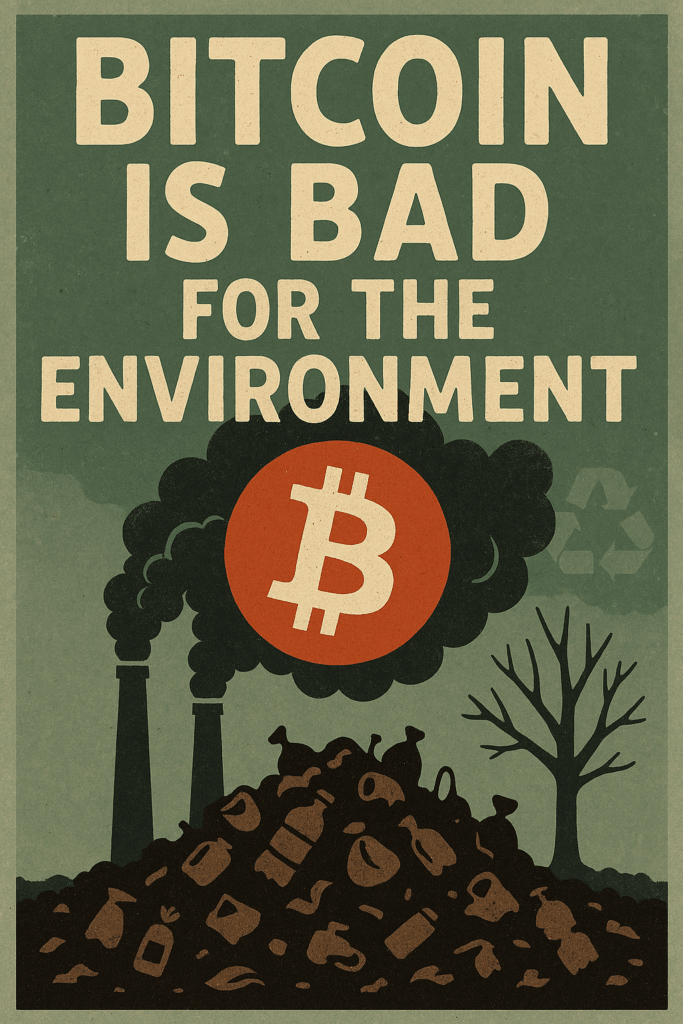
Moreover, some mining operations use excess energy or stranded power: surplus energy that is available but wasted. Additionally, Bitcoin’s proof of work system provides economic security without dependence on a centralized authority, which raises the question of justifying the expenditure of resources in energy.
There’s no denying that concerns exist; however, the emissions from Bitcoin are usually lower than claimed, and more efficient emissions are achieved by new technologies like the second layer solutions where Bitcoin can be built on top of Ethereum, or practices such as sustainable mining.
The Environmental Impact of Using Bitcoin Pros & Cons
Pros:
- Bitcoin mining utilizes renewable or stranded energy sources.
- Innovation of energy efficiency and clean technology is advanced.
- No physical infrastructure such as banks is needed for currency, allowing for a global economy.
Cons:
- Using proof-of-work mining consumes a lot of energy.
- Critics maintain it adds to fossil fuel carbon emission.
- The environmental concerns are often watched for regulatory purposes.
5. Bitcoin is a Bubble
Critics of Bitcoin tend to view it through the lens of past financial bubbles, assuming it will burst one day. Bitcoin, however, has repeatedly hyper-corrected in price and has continued to increase in reliability and usability.

Contrary to speculative bubbles, Bitcoin’s value is not solely determined by the hype surrounding it; rather, its usefulness, security, and scarcity play a significant role. A number of institutions such as prominent banks and hedge funds have acknowledged Bitcoin’s existence as treasure and secure digital currency.
It is being used in payment systems, investment accounts, and even being adopted by some states as part of legislation. Despite existing volatility, we can confidently state that Bitcoin has endured and will continue to endure in the long term.
Unlike bubbles that implode and vanish from sight, Bitcoin consistently increases in adoption and infrastructure growth, making the “bubble” argument weaker and weaker over time.
Bitcoin’s Valuation Bubble Pros & Cons
Pros:
- The bitcoin bubble attracts further attention and investment from outside entities.
- Speculation cycles help to strengthen the market and weed out weak investors.
- Can encourage investment curiosity in educational curricula as well as discretionary.
Cons:
- Risks of sudden, gut-wrenching market crashes may scare users away for good.
- The bitcoin bubble draws a great deal of unsustainable price spike hype from the entire market.
6. Bitcoin is Too Volatile to Be Useful
The volatility in Bitcoin is well known by now, but it does not make it useless; in fact, as more and more people adopt Bitcoin it becomes useful, its volatility reduces over time as adoption rate increases.
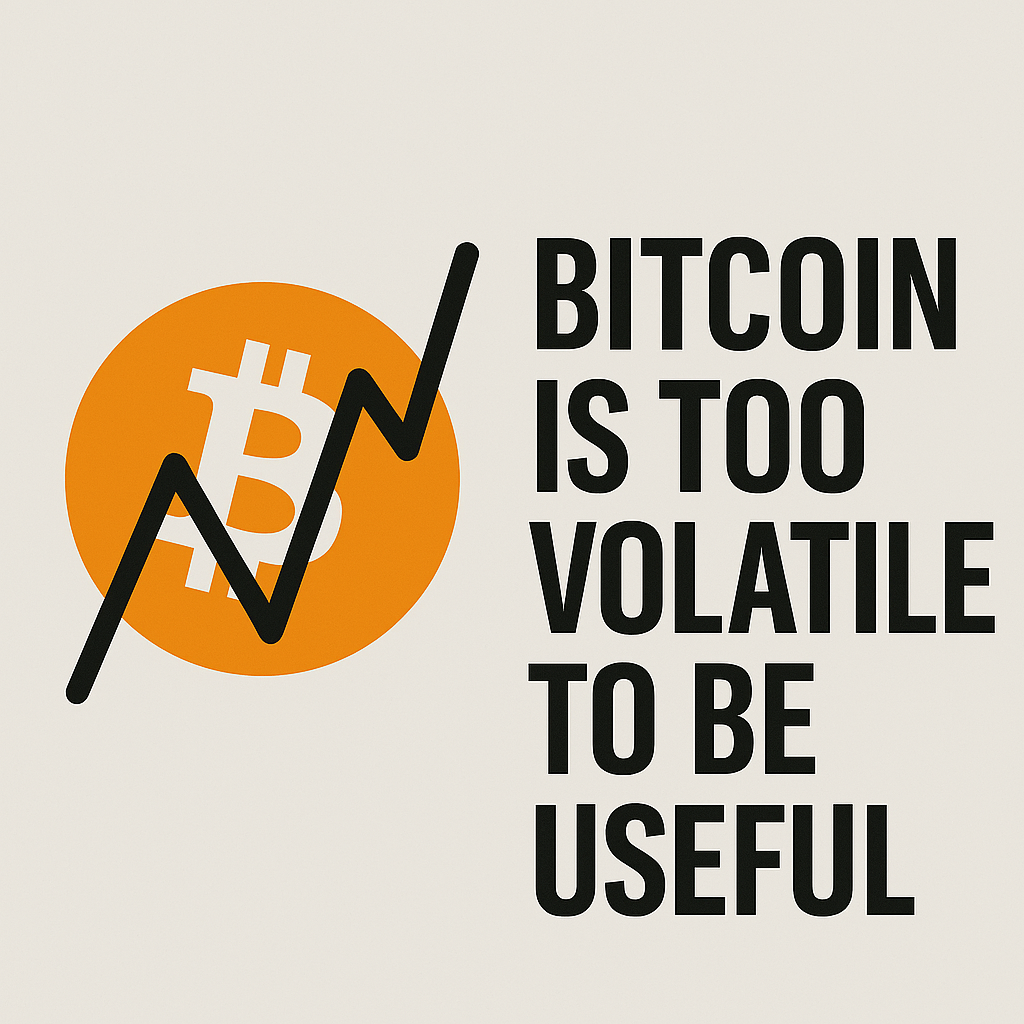
Bitcoin serves multiple purposes almost from international trade to its storage as a value. “HODLers” or long-term investors focus on restricting Bitcoin mining. Bitcoin gets stronger against government controlled currencies prone to hyperinflation because of its decentralized structure.
Bitcoin acts as a safety net for people residing in Turkey and Venezuela. Bitcoin gets more stable as more traditional market investors put their money into it. This further proves that its volatility reduces over time.
Bitcoin is Too Volatile to Be Useful Pros & Cons
Pros:
- The volatility that plagues the bitcoin bubble creates numerous profit opportunities for aggressive traders.
- llong-term holders (HODLers) stand to benefit from bitcoin’s appreciation over time as prices rise.
- Volatility is said to reduce as there is increased adoption.
Cons:
- It hinders the virtual currency’s ability to be used in everyday transactions.
- Price nadir-freefall-like shifts make irreversible split-property investments unappetizing.
- Drastically erodes identity as an alternative to government currencies for long term value storage.
7. Bitcoin Will Be Banned by Governments
Concerns regarding the banning of Bitcoin have emerged because governments have always been skeptical about it. While some countries have gone as far as placing restrictions, no country has been able to out-right suppress the adoption of Bitcoin.
Countries like the U.S., Japan, and Switzerland embrace Bitcoin alongside regulations due to its economic value. Even China, a country that tried to outlaw Bitcoin, still experiences a surge in underground trading and adoption.

This is all possible due to the decentralized nature of Bitcoin which makes is extremely hard to ban. Countries are starting to realize the importance of Bitcoin in world finance, which is why they are shifting towards regulation rather than prohibition.
Many countries are focusing on Central Bank Digital Currencies(CBDCs) instead of Bitcoin which is a further endorsement for digital assets.
Governments to Ban Bitcoin Pros & Cons
Pros:
- Legal challenges foster innovation and resilience in the ecosystem.
- Growth is fostered in some countries that choose to regulate instead of banning it.
Cons:
- Government bans typically restrict access and forcibly drop prices.
- Regulation fear might deter some mainstream users.
- Lack of laws makes adoption from institutions difficult.
8. Bitcoin is a Ponzi Scheme
A Ponzi scheme does not have any actual product or service; it simply relies on newer investors paying for older ones. That’s not the case for Bitcoin, which functions on a transparent and open protocol.
Its value comes from utility, decentralization, and not deceit. Compared to Ponzi schemes, Bitcoin does not have a central authority that guarantees returns. Bitcoin is not backed by any central “trustee” who promises returns and can be manipulated easily through its open-source code and publicly viewable blockchain.

Bitcoin’s price is set by market demand, and there are numerous businesses, and even governments, that acknowledge its legitimacy.
While new “investors” force Ponzi schemes to collapse, Bitcoin thrives, albeit facing regulations. Calling Bitcoin a Ponzi scheme shows a clear lack of understanding its basic nature, and properties that enable it to truly flourish.
Bitcoin is a Ponzi Scheme Pros & Cons
Pros:
- There are none because this statement is a myth based on a misunderstanding.
- The public’s misconception will drive some critical thinking.
Cons:
- The circulating “lies” harms Bitcoin reputation.
- Scammers using Bitcoin tarnish the name of the technology.
- New people can be easily fooled into doubting real projects under crypto.
9. You Have to Buy a Whole Bitcoin
A popular misconception is that bitcoin can only be bought as a whole. The reality is that a single bitcoin can be broken down into smaller, more affordable pieces known as satoshis (1 Bitcoin = 100 million satoshis).
Bitcoin enables investments to be made according to financial capability. Numerous services provide micro-investing opportunities, allowing individuals to invest in Bitcoin for as little as a few bucks.

This myth prevents many people from accessing the market, as they incorrectly believe that they need thousands of dollars to pay upfront.
One of the most beneficial aspects of bitcoin is the fractional coin ownership, which allows a wider range of people to benefit without having to purchase entire coins.
You Have to Buy a Whole Bitcoin Pros & Cons
Pros:
- The myth aids in educating the public about Bitcoin’s divisibility.
- Also encourages accumulation and long-term holding.
Cons:
- The wrong perception can frighten new investors.
- The misconception stops dollars from entering the market.
- Restricts Bitcoin’s wider appeal.
10. Bitcoin Will Be Replaced by “Better” Coins
There is an ongoing argument that Bitcoin will get overshadowed by “better” alternatives in the wake of the thousands of cryptocurrencies offered today. This is not true due to the fact that Bitcoin has network security, decentralization, brand recognition, and other unique advantages.
It uses the most accepted and integrated form of cryptocurrency as a first-mover benefits which is Bitcoin itself. While bleeding edge coins attempt to innovate, none come close to the level of decentralization and security that Bitcoin offers.
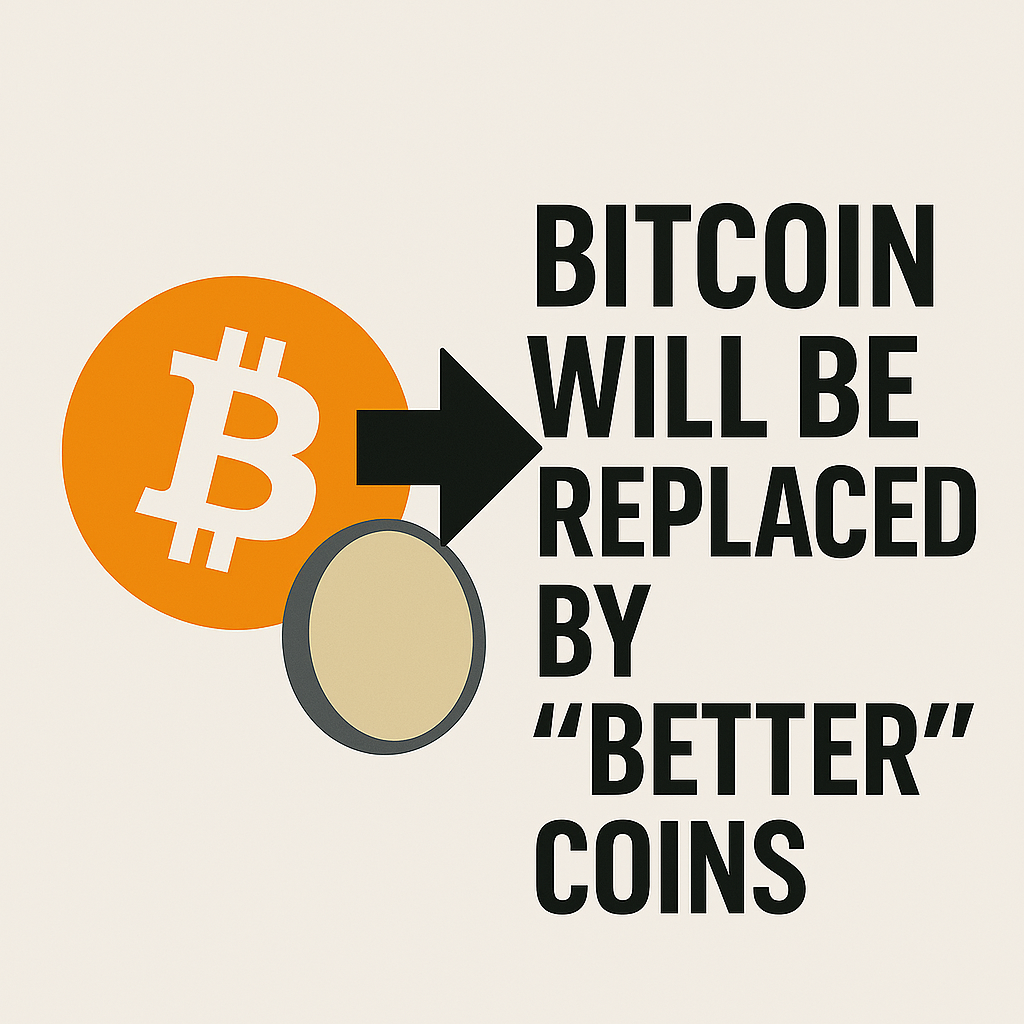
Even the governments and institutions funneling resources into supporting blockchain technology tend to focus on Bitcoin.
Other coins might serve some purposes but none reach the stature Bitcoin holds in terms of a digital asset or store of value. Bitcoin’s enduring evolution guarantees its prominence while proving that it cannot simply be replaced.
Bitcoin Will Be Replaced by “Better” Coins Pros & Cons
Pros:
- Allow for more upcoming competition and innovation in cryptocurrencies.
- Pushes improvement in the development of Bitcoin itself.
- Alternative coins can serve niche use-case functions.
Cons:
- Difficult to reproduce Bitcoin’s network effect and trust.
- New coins are typically less secure and less decentralized than Bitcoin.
- Excessive competition can confuse new users and undermine faith in the currency.
Conclusion
Over the years, Bitcoin has undergone significant growth, innovation, and adoption-yet it still remains subject to myths that misrepresent its true essence. Whether it’s claiming Bitcoin is friendly to criminals or calling its environmental impact negligible, most of the myths come due to lack of information or misinformation.
In truth, Bitcoin has shown its reliability, transparency, and proves its potential on a global scale. With further education and adoption, distinguishing fact from fiction becomes even more critical.
These myths need to be busted to ensure that conversations held regarding Bitcoin will be more constructive, and help innovate its purpose in the global world of decentralized finance.


